Your Russia-related questions have been answered
Exhaustive responses to 15 highly germane reader-submitted questions
Last week I invited my beguiling and perfect-in-every-way paid subscribers to ask me questions about Russia, or other topics, if they felt so inclined.
Their queries spanned from the lighthearted to the quite controversial. Many of the questions had no “correct” answer, but since this was my Q&A, I thought it would be appropriate to share my own, unvarnished perspectives.
There’s a decent chance some of my answers might rub you the wrong way, but please remember that I’m a blogger with poor prospects, and so instead of being angry with me, you should pity me and give me money.
My hope is that these questions—and my answers—will encourage constructive, stimulating dialogue on the subjects that were touched upon.
But anyway, happy reading, and thank you again to my generous paid subscribers, who tolerate a lot; too much, really.
—Riley
Reader “Aivazovsky” asks: It seems a lot of what you write is more or less implicitly meant to dampen any unrealistic hope western traditionalists and anti-WEF types might have that Russia could be a place for the future. How would you rank Russia compared to other countries in terms of potential future freedom from WEF/WHO/ESG/etc. oppression?
It’s true this blog has probably disabused readers of unrealistic expectations about Russia, but for the sake of accuracy, I would like to stress that I am simply relaying what Russians themselves are saying about their own country.
Still, I firmly believe Russia has a lot to offer, as long as you understand you will have to carve out your own little fiefdom of personal dignity and self-sufficiency—which is no easy task—and the idea that, upon reaching Russia, you suddenly become immune to space lizard machinations, is simply not true.
I have several friends in Russia who, through hard work and self-sacrifice, have created wonderful, inspiring lives for themselves and their families.
Look: Russia is not for everyone, and moving there requires careful consideration and serious commitment. Sometimes I receive emails asking me for advice about emigrating. I always tell these people the same thing: The benefit to moving to Russia is that you will be living among people who are instinctively suspicious of authority, and the government’s true “5D” quality is that it is not very skilled at governing.
Some people come to Russia for religious reasons, or because they think it’s their best shot at escaping “globohomo”, which is perfectly understandable.
Planting new roots in Russia has become more difficult due to SWIFT restrictions, but it is possible to funnel money into the country using P2P crypto trades, or Thai bank accounts. It’s not really an ideal arrangement, but it works.
If all of the above sounds appealing to you, then Russia is definitely an option worth exploring.
Reader “Jim Foye” asks: How did Russia come to control land all the way to the Pacific, and what's to stop the Chinese from just taking Siberia one day? Are there really enough Russians to hold all that land? What all is going on there, now that the Gulags are closed? The place is huge, we're talking like, four time zones, right? There must be vast stretches of nobody. I guess the song you posted got me to thinking about it, plus I recently purchased the Gulag Archipelago, which I plan to read over the next five years (I'm a fast reader).
“Let’s ask an American about 16th century Russian history”—thanks, Jim.
According to my extensive research (watching YouTube videos), Ivan Grozny—also known as “Ivan the Terrible”—starting gobbling up bits and pieces of Siberia in the roaring 1550s. Ivan enlisted a Cossack chad named Yermak Timofeyevich to subjugate the natives of these virginal lands, and it seems he was quite adept in this line of work.
Yermak (known by friends as Lil’ Timo) was eventually killed by uppity Tatars, but his mission of making Russia the largest, most ungovernable nation on Earth continued at a surprisingly brisk pace.
By the early-mid 17th century, Russia’s border had reached the Sea of Japan, or the Sea of Okhotsk, or the Bearing Sea, or maybe all three, or maybe I just made all that up. It happened eventually, though, I’m pretty sure.
Russia’s rapid eastward expansion was made possible by the fact that nobody really lived out there, and aside from the monthly Homeowners’ Association meeting, the locals were not particularly well-organized. There were undoubtedly more than a few subjects of the Tsar, living and dying in yurts at the edge of the known world, who had no idea they were part of the Russian Empire.
I’m not actually sure why China didn’t move into Russia’s Far East back when people were more chill about territorial conquests. I’m guessing because the Chinese already had all the land they needed, and also because they had a rather insular civilization for many centuries, until the British started forcing them to buy opium.
As to whether Beijing is eyeing parts of Russia as it licks its chops: I’m not so sure. There are a number of “economic development” projects that involve Chinese firms in those areas—logging and the likes. From time to time I stumble upon Russian media reports (or maybe just theories) about the potential risk of Chinese encroachment, but for now it sounds a bit alarmist.
Everything I just typed is probably wrong.
Next question.
Reader “Paisios” asks: What do you think is the biggest misconception that outsiders have about the Russian political system, and why is it wrong?
As far as I can tell, the main problem is that many people seem to think Russia is without a political system (which, like all political systems, can be described as “the process and means by which rich, powerful people get whatever they want, ‘legitimately’, and ensure that they stay rich and powerful forever”).
Judging from what passes as “Russia coverage” these days, Russia’s political system is apparently limited to Putin, Lavrov, and maybe four or five other dudes, who are methodically implementing their grand plans for Russia, and the rest of the world.
I have a quick homework assignment for you. Take out a piece of paper and a pencil, and write down the names of all the Russian officials, regional governors, oligarchs, mayors, lawmakers, CEOs of state-owned conglomerates, ministers, senior administrators, military brass, etc., that you can think of.
I’m willing to bet most non-Russians would struggle to list 10 names (including Putin) without consulting Wikipedia—which is nothing to be ashamed of, just to be clear.
But now consider: Of the names you can list, do you know anything at all about these people? Are they just names with a job title to you, or would you be able to explain how they got to where they are today—as in, the path they took to reach their current post, and what this path might say about their allegiances, their conflicts of interest, and perhaps even their internal rivalries?
What kind of international organizations and networks are they affiliated with? Internally, can they be placed in a distinct faction (the Western bootlickers/neo-Soviets/conservatives/nationalists/technocrats/ruble-grubbing nihilists/a combination of various groups or clans pursuing their own selfish interests)? Actually, this question is a bit pedantic, because 90% of the time, anyone with real power in Russia will be part of the prestigious “embezzle as much money as humanly possible, while not getting in the way of my fellow-embezzlers” clan.
If we’re talking about an oligarch (sorry, “socially responsible entrepreneur”), in what ways does the Russian state protect their business interests? And is it possible to identify specific members of the government (in the Presidential Administration and the federal government, in the State Duma, as well as officials and lawmakers at the regional and even local level) who are abnormally enthusiastic about shielding the profits of this oligarch? If so, what might this mean?
“Show don’t tell” is an important part of blogging, so I will give you an example of what I mean.
In Russia they tell children bedtime stories about a terrible witch named Tatyana Golikova. For most Russia Watchers, Tatyana is known as “Deputy Prime Minister of Russia for Social Policy, Labor, Health and Pension Provision”.
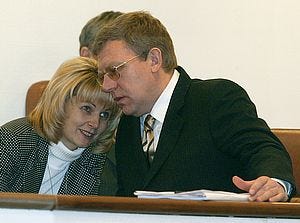
Here at Edward Slavsquat, Tatyana is primarily known as a protégée of neoliberal heartthrob Alexei Kudrin (who left the Accounts Chamber last year, and now serves as Yandex’s “corporate development advisor”).
Throughout Russia, and also on this blog, Tatyana is also warmly referred to as “Madame Arbidol”. During her tenure as health minister, Tatyana encouraged Russians to buy a drug called “Arbidol” to protect themselves from the dreaded Swine Flu. It was later discovered that Arbidol had no health benefit, and Swine Flu was a hoax.
Her COVID-scamming has been no less impressive.
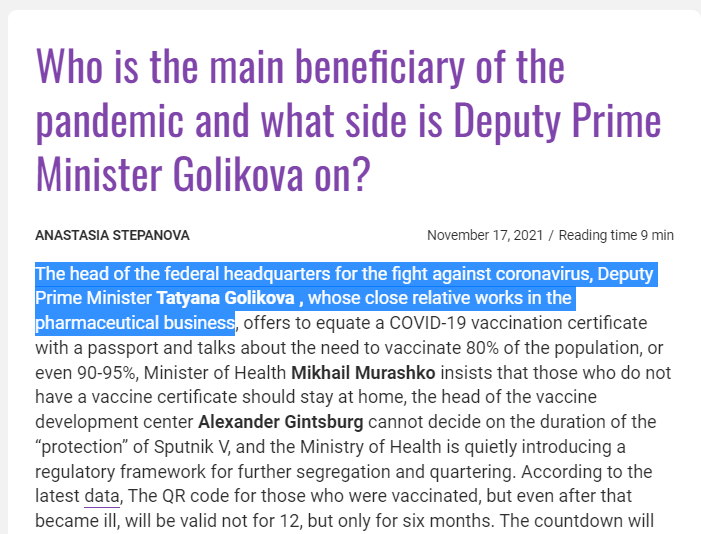
Golikova doesn’t just have a few fingers in a few harmless pies—she has planted her entire face in a giant grift-casserole.
For impossible-to-explain reasons, pharmaceutical companies owned or partly controlled by close friends (and even family and relatives) received generous government contracts to manufacture all kinds of COVID-related trash, including Sputnik V.
One of the largest beneficiaries of the “pandemic” in Russia was a firm called Pharmstandard, which has subsidiaries that are co-owned by Golikova’s husband, Viktor Khristenko, the president of the Business Council of the Eurasian Economic Union (EAEU), and a former Deputy PM of Russia. Like husband, like wife, as they say.
In October 2022, Golikova was appointed to a Coordinating Council to help solve logistical issues related to the SMO.
She was tasked with organizing “medical support, including the provision of specialized and high-tech assistance and rehabilitation to our defenders.” She was also charged with ensuring the smooth flow of payments and allowances to servicemembers.
There is reason to believe she hasn’t been fulfilling these critical duties particularly well.
And this is just the preliminary background info for one of dozens of insane people who are lording over Russia.
Just as a quick aside: The Prigozhin-Shoigu feud (which is now impossible to ignore or dismiss) is basically the only reason you need to scoff at the notion that the “Russian political system” is a well-oiled, sleek and streamlined machine, absent of bitter rivalries, competing interests, and vicious factional in-fighting.
Being aware of this kind of information is crucial to understanding what makes Russia tick, and why the Russian state does what it does. And basically, despite Westerners being obsessed with Russia, nobody knows anything about this stuff.
Everything is distilled into very easily digestible, simplistic one-liners, soundbites, and incantations.
So if you are getting your Russia-related news from the New York Times, Russia is a gelatinous, evil blob of freedom-hating tyranny and oppression, personally steered by Putin, who is some kind of all-powerful autocratic warlock, working tirelessly to make the world less safe for Democracy. And while there are sprinkles of truth embedded in this goofy caricature, it’s nothing more than a cardboard cutout of something that is supposed to represent Russia’s political system, which Westerners are encouraged to throw rotten vegetables at.
Alternative media is good at pointing out the rank hypocrisy and lunacy of Washington’s ceaseless, two-faced lecturing (well, it’s a lot more than just lecturing now, what with the Not-War) directed at Moscow—but truth is, we are presented with an equally quixotic caricature of Russia’s political machinery, which rarely goes deeper than cherry-picked statements from Putin, Lavrov, and Shoigu.
If alternative media is supposed to give Westerners a better picture of how Russia functions as a political apparatus, it doesn’t do a very good job of it—because these outlets also obsess over Putin, and maybe two or three other senior Russian officials.
Only now every boilerplate utterance is part of a Grand Master Plan to checkmate the globalists, instead of being portrayed as sexual harassment against Western Values.
I mean, think about your own country. Imagine a foreigner trying to understand how your country’s political system works, or what motivates and influences policy decisions, based solely on carefully crafted statements made by your Prime Minister, and maybe one or two other senior officials.
Imagine trying to wrap your head around American politics using this template.
Why on Earth would it work for Russia?
This is one of the reasons why Western alt media failed to accurately represent Russia’s COVID measures.
When clot-shots arrived on the scene, Putin mentioned he was “personally” against compulsory vaccination, and alt media—without even attempting to add context—interpreted his (duplicitous) statement as proof that 1) Russia had no compulsory vaccination and 2) Putin was fighting against COVID tyranny.
Both conclusions were completely wrong. Later there were attempts to claim that Russia’s regions introduced compulsory vaccination and QR codes against the wishes of the Kremlin and the federal government—which, as I demonstrated in a recent post, is laughable.
How were such fanciful claims even possible? Simple: Because they were able to disseminate within the context of no context.
But let’s return to this fixation on what Putin says, and how his comments are used to create entire narratives out of thin air.
What ends up happening is that everything Putin says or does is interpreted as some sort of paradigm-shifting “game changer”.
I’ll provide an example.
Putin gave a long-awaited and highly anticipated address to the Federal Assembly in February. His speech was praised in Western alternative media as visionary, and a devastating broadside against Russia’s enemies.
In Russia (outside of state media), it mostly received yawns.
Katyusha.org—which is pro-Putin—was so underwhelmed that it created a graphic with a tired-looking Putin next to a unicorn. The article’s headline declared the speech would have been well-received … in 2020. But now it was too little, too late.

I won’t go into why Katyusha came to this conclusion, but I encourage you to read the analysis yourself, and then ask yourself: Why did Western alt media paint a totally different picture of this address?
Katyusha’s reaction to Putin’s speech actually serves as an excellent segue to the second part of my answer.
Westerners (both “anti-Russia” and “pro-Russia”) seem to operate under a false dichotomy, in which the spectrum of political and ideological beliefs in the country is limited to “I support Putin” or “I support Navalny”.
Apparently we are expected to believe that the world’s largest country, with one of the most schizophrenic histories in recorded history, containing dozens of ethnic groups with various cultural and religious traditions, and kept afloat by labyrinthine economic arrangements which primarily benefit a small minority, is bereft of all political diversity—and therefore, the hopes and dreams of its citizenry are adequately represented by either Putin, or Navalny. Simple, nice, and tidy.
Well, as Katyusha demonstrated in the article cited above, often even Putin supporters get fed up with Putin. And for those who might not know, Russians who don’t support Putin aren’t necessarily pro-Navalny. There is actually a wide and colorful variety of political views in Russia, many of which are underrepresented (or not represented at all) in the State Duma, the federal government, and regional administrations.
Any American should be able to understand this phenomenon perfectly. Does the Democratic Party represent your views? No? Well, does that mean you are a Republican? And of course, if you refuse to sign up for this fake binary, you are accused of allowing the Greater Evil to prevail. (“If you don’t vote for Cabbage Patch Joe, Orange Man will win!”)
That being said, it’s not completely accurate to compare Putin to a US president who relies on hatred of “the other candidate” to win reelection.
Putin has sort of transcended politics altogether, as he never has to answer for all the idiotic things his underlings do (which is by design, because he keeps his hands very clean). In this sense, especially on domestic issues, he’s become more of a “figurehead” who serves as a symbol of unity, tradition and stability—like a modern British monarch. By the way: I do believe a majority of Russians still support him, even if we assume flattering poll numbers have been tampered with.
But support for Putin does not translate into support for the Uniparty (United Russia), and it most certainly isn’t an endorsement of Putin’s cabinet, or all kinds of horrible legislation—which Putin always seems to sign into law, without any objections.
Anyway, I’m sort of getting off-track. But I think you understand the point I’m trying to make: You can’t understand how Russia works by just focusing on Putin and Lavrov, and there’s a huge range of political thought that never seems to manifest itself in the Putin-Navalny fake binary that is spoon-fed to Westerners.
Reader “jt” asks: Squatting is known to develop leg muscle mass, and muscle mass is correlated with testosterone levels. As testosterone is associated with less fearful, more confident thinking, would you say Slav-squatting has been a big contributor to Russians’ opposition to globalism?
I ran some numbers and the science checks out.
Actually, I would like to use this opportunity to defend the honor of this blog’s name. I do not think it could have been called anything else, as it achieves a number of important objectives all at once: It’s vaguely intriguing, offensive to a humorless minority (who are not welcome here, anyway), and encourages people to loosen up a bit.
There is nothing serious about 2023, and the Western “pro-Russia” alt media space is even less serious. Ironically, my not-very-seriously-named blog is arguably the most serious source for serious Russia-related issues in the English language.
But also, too many standers look down on squatters, which I think is discriminatory and wrong.
The squat is basically just Slavic yoga, and it is utilized in supernatural ways in traditional Slavic dance.
True story: In late 2019, and into the early months of 2020, I made a valiant attempt to teach myself the “Hopak”, a Ukrainian folk dance that involves “squatting sequences”, according to Wikipedia.

By early March 2020, my rhythmic squatting was passable—I’d even say decent. My plan was to perform a dance routine at my little sister’s wedding in Rhode Island later that year. I even found a shop in downtown Moscow that sold traditional Slavic attire, and bought myself a pair of leather dance boots, and some baggy blue folk dance-pants.
Anyways, long story short: I got locked-down about two weeks later, fell into a deep, dark depression, and forgot all about the Hopak, and squatting in general. My sister canceled her wedding, too. Double-bummer.
This sequence of events also crushed my lifelong (but top-secret) dream of joining the Igor Moiseyev Ballet. Well, a boy can still dream…
If I’ve had too much to drink at parties I still try busting out the Hopak, and to those who know me personally, I am very sorry about that.
I guess what I’m trying to say is that the Slavs should embrace the squat—I certainly do.
Also, I would just like everyone to know that I received written permission from Marko Marjanović, who is a Slav, to call this blog Edward Slavsquat. His permission slip was notarized by the Slovenian Ministry of Culture. So it’s legal and there’s nothing you or anyone else can do about it. So there.
Reader “Andy H” asks: Are there chemtrails over Russia? I thought they were primarily being sprayed over NATO countries but then I watched a documentary that showed a photo of chemtrail covered skies with the caption “Russia.”
According to Russian activists: Yes, probably.
A group headed by well-known lawyer and activist Denis Shulgin recently released a report analyzing soil and rainwater samples taken from the Leningrad region.
If I understand the preliminary results of their probe correctly, it seems the rainwater samples were inconclusive, while the soil samples found potentially worrying levels of mercury, arsenic, and other fun substances.
A final report was released after conducting more lab tests and other analyses. It appears they identified several indicators that would suggest some kind of not-good environmental tampering.
This is not a subject I know a lot about, but it’s definitely something that has received attention from activists in Russia, and many of them seem to think something fishy is going on.
Reader “Freelander” asks: Hi Riley. There's something I'm racking my brains about since the first time I visited Russia 20 years ago: Why is the Soviet-era регистрация [registration] still in place? What is the goal, at least for foreigners/tourists? The way I see it, it's a tourism/travel deterrent with no obvious gain for the government but clear loss for Russia. (You can get a more precise idea of what puzzles me and what my question is about by reading the “General considerations” epigraph in this blog post of mine: http://en.freelander.es/travels/registration-belarus/ ). Another question if may, Riley: How well do you know Belarus and what do you think about it, in terms of the WEF agenda? Is Lukashenko as WEF-compliant as Putin?
Hi Freelander.
Your question is a very sensible one. Unfortunately, the Russian government’s penchant for unnecessary paperwork and documents, and stamping aforementioned paperwork and documents, is much less sensible.
The infamous “registration” process is one such example of the Russian government’s reticence towards letting people live their lives without official permission to do so.
For Russian citizens, Moscow’s nanny state Weltanschauung takes the form of the domestic passport, which, if used properly, is basically a stamp collection of your entire adult life; you even have to get this silly document stamped when you get married. (Of course, one could argue that this paper record trail is actually nothing out of the ordinary, and that Russia is actually “behind the times” by not going digital. Well, there’s also something called “Gosuslugi”, but we can talk about the pros and cons of this e-government system some other time.)
Tourists and foreigners are also required to “register” at an address. If you are a tourist, usually your hotel is obliged to inform the authorities of your whereabouts.
Of course, foreign residents must also partake in the ritual of registration.
Why any of this is necessary is beyond my comprehension. Probably it is justified by some narrow-minded, statist concept of “security”. Undoubtedly, the main motivation is that there are many parasites employed by the Russian state, and these unfortunate souls need a constant stream of busy work to justify their existence.
What I mean to say is that registration is safe, convenient, and effective.
I should mention that if you are a foreigner, the Russian authorities are not going to hunt you down if you fail to register somewhere—although problems will inevitably arise if you have to submit a form, to get another form, to do something mundane that requires five more forms.
Actually, shortly before leaving Russia, I found myself in a situation where I had to seek out the services of a government department. When they realized I was completely unregistered, they just went “meh”.
Turns out it was the wrong department. But I did eventually find the correct department, and they also didn’t care.
I’ve heard unsettling stories from friends and acquaintances, but I suspect Russia’s bureaucracy is engaged in a massive psyop, which spreads tales of red-tape horror, to convince people it would be pointless to even attempt to ask the Russian government for anything—because this means much less work for Russian civil servants. If they aren’t doing this, they should, because it’s a very good idea.
I also want to mention that in my experience, passing through Russian border control is a professional, polite affair—and I have always been treated with respect, even a certain disinterest, which unfortunately is not how globetrotting Russians are welcomed by the West’s Community of Values.
As to your second question: I cannot claim to be intimately familiar with the situation in Belarus. In January 2022, I interviewed two residents of this fine country, and maybe their observations will be of interest to you.
However, Lukashenko has always struck me as the no-nonsense autocrat that many people think Putin is, but isn’t, really.
Luka is possibly the most Davos-phobic leader who hasn’t died from mysterious causes, but if the “pandemic” has taught me anything, it’s that it’s inadvisable to place your hopes and dreams in the hands of a single leader. Gotta stay on your toes.
Reader “Cecílie Jílková” asks: Someone is tweeting that the Russians are letting too much water flow through the breached dam [in Ukraine] to increase the damage, is this based on anything real or is it all nonsense? Also, is there any possibility to do an interview (written remotely) with Vadim Cheldiev [an opera singer who was sentenced to 10 years in prison in July 2022 for “extremism” after he called for protests against COVID restrictions]? Are there any articles or reports coming out about him in Russia? Is anyone trying to do anything about his case, perhaps a human rights initiative? I wrote quite a long article about him and read the court notes. I'm convinced that the assault on the police officer was faked.
I haven’t the slightest idea who breached that dam in Ukraine, and I’ve yet to see any conclusive evidence that convincingly assigns blame. Maybe it was the Portuguese? I haven’t been provided evidence that it wasn’t the Portuguese, and according to the current conventions of online debate, that should be reason enough to declare Portugal guilty beyond a reasonable doubt.
All I know is that a tragic number of innocents had their homes completely flooded, and it was very terrible to see videos and images of non-combatants, languishing on rooftops, as they waited to be rescued.
The Not-War continues to demonstrate the worst aspects of human nature, which haven’t changed much in the last 2,000 years.
I’m not sure if it’s possible to get in contact with Cheldiev, and I haven’t seen any recent media reports about his situation, or grassroots efforts to correct this horrible injustice.
Obviously, regardless of the particularities of his case, the charges brought against him were farcical and embarrassing. I sincerely hope he will not have to serve a decade in a penal colony for encouraging people to attend a rally in support of (wait for it) … having the right to go outside without special permission from the government. If this constitutes “extremism”, Russia is in big trouble.
Reader “Pill Giigle” asks: Does Chinese Food taste the same in Moscow as in Vladivostok?
Regretfully I’ve never been to Vladivostok (I’ve only been as far as Kazan), so I cannot comment on that city’s culinary offerings.
I’ve also never been to China, but I’ve been told that real Chinese food is considerably different from what passes as Chinese food outside of the Celestial Empire.
I can’t say I’ve sampled a wide variety of Chinese cuisine in Moscow, either. I remember going to a Chinese restaurant (whose name now escapes me, but I think it was somewhere on Leningradsky Prospekt) that featured a peacock who wandered the premises. That was pretty cool.
The food was fine, although nothing remarkable. The peacock was the clincher.
Reader “Veronica” asks: Where are you living these days, and if not in Russia, when did you leave, and why? And what took you to Russia in the first place? Just trying to get a sense of the range and depth of your experience there.
I’m still in Cringey Casablanca (Tbilisi, Georgia). I was in Russia for about a decade before relocating (temporarily, I hope) here.
I originally came to Russia to teach English in Bashkortostan. Let me tell you: Bashkiria is a very different world from Moscow or St. Petersburg, which is typically where expats congregate.
I am very grateful for my time in Bashkortostan, before moving to Moscow, as it gave me the full spectrum of what life in Russia is really like—which is something many foreigners in Russia never fully experience.
My reasons for coming to Tbilisi are not so interesting. My Russian visa expired, and instead of seeking the services of a visa agency (which is what any sensible person would do), I decided to make my own arrangements.
I had a friend who was living in Tbilisi, so I concluded it would make sense to apply for a new visa in Georgia. As is so often the case, I was completely wrong—Georgia was possibly the worst place in the world to try to get a Russian visa, for technical reasons that aren’t worth detailing.
Because I am stubborn, and also lazy, I ended up staying here, and summoned my young son to join me. He stayed with me for about six months, but recently returned to Russia to spend time with the Russian side of his family.
I hope to return to Russia in the autumn, once I take care of some unfinished business (eating delicious Georgian beans, mostly) in Tbilisi.
Reader “Lil’ Kremlin” asks: Kadyrov vs Prigozhin vs MOD, based patriots led by Strelkov talking a little too much “truth”, asking uncomfortable questions. Is that all theater for public consumption in your opinion, or is there a chance there can be some fresh tensions and unrest in the upper echelons of power in Russia amid the continuing SMO and no rounds of talks in the near future?
The theory that Prigozhin publishes almost daily videos calling Shoigu a back-stabbing slime-ball, as part of an interdimensional psychological warfare campaign designed to confuse Washington and Kiev, can only be described as an astonishing and embarrassing demonstration of willful self-delusion shared among a certain clique of English-language “pundits”.
The obvious question that people should be asking is: Is this fanciful belief popular inside Russia? Answer: No, it is not. Not at all. And for very good reason—because it is profoundly illogical, and requires a level of credulity that is frankly worrisome.
Prigozhin’s main grievances against the MOD—which I think can be summarized as “unrepentant incompetence”—have been echoed by patriotic, pro-military hardliners in Russia, basically since the start of the SMO.
A lot of these guys have first-hand experience in Donbass fighting in various militias, and have no affiliation with Wagner. Which means that if you think Prigozhin’s outbursts are maskirovka, then you must believe that dozens of Russian military veterans and “milbloggers” are also “playing along”. This is unlikely, in my humble opinion.
That being said, it’s obvious Prigozhin has some very powerful sponsors, probably inside the Presidential Administration. So I don’t think it’s accurate to portray him as a true renegade—he clearly represents the interests of a powerful faction within Russia’s current ruling elite. Is this faction preferable to Shoigu’s (obviously deeply troubled) MOD? Maybe. Or maybe this will all lead to more pointless death and destruction. Time will tell.
There is clearly some kind of power struggle going on at the highest levels, although I don’t feel comfortable speculating on what is really happening behind the scenes, for the simple reason that I don’t think anyone knows.
But to pretend Prigozhin, Shoigu, and Kadyrov are one big happy family, sneakily creating the illusion of deep internal divisions, in order to misdirect NAFO shills on Twitter, is just…I have no words.
No matter what your views may be about Prigozhin and Wagner, one must admit that it’s highly weird that there’s a private army operating in Ukraine, which is in open conflict with the Russian military’s top brass. Somehow this bizarre state of affairs became completely normal. Is it normal, though?
Reader “John (Realist Report)” asks: Hey buddy, I'd like to get your take on the JQ and revisionism in Russia. Here are a couple questions:
1) What's the real deal with “Holocaust denial” in Russia? I see a lot of White nationalists in the West (mostly America) constantly demonizing Russia because it supposedly has “Holocaust denial” laws on the books and promotes the official narrative of WWII, i.e., evil Hitler and Nazis bad = Soviet Red Army good. Can people openly question, criticize, or outright dispute the official “Holocaust” narrative that 6 million Jews were systematically slaughtered by the “Nazis” in gas chambers and other horrific methods in a state sanctioned policy of genocide?
2) For any critical observer of American politics and society, it is simply impossible for those of us with any sort of integrity and critical thinking ability not to recognize the overwhelming power and influence the organized Jewish community and individual Jews have in America, both in the government and private sector. What role do individual Jews and organized Jewish groups play in Russian society? Are they as powerful and influential in Russia as they are in America? Is there a Russian equivalent of the ADL operating in Russian society that extorts the government and private sector actors, shutting down criticism or even scholarly discussion of Jews, and otherwise attempting to maliciously harm those that are aware Jewish people exist and have certain motives and agendas?
I could go on, but I’ll stop here. I know these are controversial topics but I would love to get your take.
Cheers,
John
Before I answer these questions, I would like to express my hope that we can all discuss them in an adult way, without resorting to denunciations, character assassinations, and obscene generalizations. I hope we are all on the same page.
With that out of the way, I will do my best to answer, and will probably add a few observations of my own.
There are indeed Russian laws that place limits on the range of acceptable opinions about the Great Patriotic War. In 2021, Putin signed a bill that made it illegal to claim Nazi Germany and the Soviet Union share equal responsibility for the outbreak of hostilities. I do not know if this law has ever been used to prosecute someone.
As for legislation banning skepticism about the “6 million” figure, or the Holocaust as a whole, my understanding (and if someone knows better, please correct me) is that you can be charged with “rehabilitating Nazism” for making Holocaust-related comments deemed unsavory by authorities.
There was a well-known case involving a Perm activist and university instructor named Roman Yushkov, who was prosecuted for Holocaust denial. He was acquitted by a jury in 2018. Yushkov was later tried and convicted for “inciting ethnic hatred” for different, not-Holocaust-related statements that he made.
The “inciting ethnic hatred” law (Article 282) has been a constant source of grief for Russian nationalists and right-wingers. But again, this is not my area of expertise, and I’m sure there are many relevant details and nuances that I’m missing.
In general, I would say Russian legislation creates the possibility of being punished for making “out of bounds” statements about the Holocaust or World War II, but just like everything else in Russia, enforcement is arbitrary and unpredictable.
And although no one asked for my personal opinion, I will give it anyway: I think laws that constrain or inhibit the open exchange of ideas are counterintuitive, and impair peoples’ ability to talk things over in a reasonable, constructive manner.
Even without such laws, there’s obviously no shortage of gatekeeping, thought-policing, and grandiose moral posturing, which make it difficult to engage in good-faith dialogue on contentious issues. It’s better to “air out” controversial topics in public, as opposed to letting them fester in the margins, creating needless animosity and suspicion. When frank and open dialogue becomes impossible, people become more polarized, and increasingly intolerant of those who hold views that differ from their own.
After much trial and error, I am convinced that it’s more rewarding and valuable to actively seek common ground with others, rather than hunt for “disqualifying” impurities—a process that will inevitably lead to a lonely utopia in your mind. (Welcome to Pure-ville. Population: 1.)
The second question is more difficult for me to answer—mostly because my depth of knowledge about the Jewish lobby (or “Zionist influence”, or whatever you want to call it) in Russia is rather limited.
As an American, I will state without qualifications that it is absolutely absurd to deny the existence of an extremely powerful, influential Jewish (or Israel/Zionist—if you want to nitpick) lobby in the United States.
The power that this lobby wields is used with sick, reckless abandon—from giving Israel near-total impunity as it carries out a campaign of systematic ethnic cleansing against the Palestinians, to berating Whoopi Goldberg for totally idiotic reasons. And everything in-between.
Frankly, it’s really annoying.
Obviously, “politically active” Jews are not the only ones who engage in legal bribery, and illegal blackmail, to get what they want from Washington; and also, we mustn’t forget that there are a great many Jews who have absolutely no involvement in this unpleasantness—actually, quite a few of them are in open rebellion against this nasty behavior.
Yes, there are powerful Jews who use their wealth and influence to exert outsized influence over education, culture, politics, and foreign policy, in the United States.
But it’s not like every Jew in America receives a weekly newsletter from Jew HQ, detailing the Monthly Swindle Against the Goyim, or whatever. Sorry for stating the obvious, but just want to avoid any misunderstandings.
Whether the situation is similar in Russia—I’m not qualified to say. But Rolo argues it’s an issue that deserves closer attention.
I suspect you’d get a wide range of opinions if you asked 20 Russians, at random, about the extent of “Jewish influence” over Moscow.
Probably many left-leaning Russians who identify as socialists would insist the “JQ” is a red herring that prevents the proletariat from freeing themselves from the transnational capitalist yoke (something like that; I’m not trying to be a smartass—I honestly don’t know the proper terminology/lingo).
On the other hand, the far-right Orthodox Christian radicals at Third Rome basically think the Kremlin is bought and paid for by scheming, conniving Jews.
Well, as Putin said, diversity is Russia’s strength. (It’s just a joke—relax.)
As a connoisseur of Russian clot-shots and cattle-tags, I will address the elephant in the room, since I’ve seen it come up in the comments section: Yes, Alexander Gintsburg, the alleged developer of Sputnik V, is Jewish. I believe the same is true of Health Minister Mikhail Murashko, and Gref.
All the other big players involved in the domestic terrorism operation against the Russian people (sorry, “friendly, health-preserving campaign of safety and effectiveness”) are gentiles.
For example, Veronika Skvortsova, who probably murdered tens of thousands of Russians with “healthcare optimization” during her own deranged reign as health minister, and who also sits on a Bill Gates-funded “Pandemic Preparedness” committee alongside Anthony Fauci, is reportedly quite active in the Russian Orthodox Church.
It seems to me that the global oligarchy is quite inclusive and egalitarian, so long as you demonstrate adequate disdain for the global peasantry.
Anyways, I understand it’s a touchy subject, but I did my best to relay the relevant information, and state my position on these questions in an honest and open manner, with malice towards none, and charity for all.
If you report me to the ADL, I will find out where you live, and as you walk to your car one day, I will pop out of a nearby bush and yell: “Reporting me to the ADL was not a very nice thing to do, you know!”
(I would also like to note that compared to Americans, Russians are far more comfortable with discussing controversial and potentially polarizing subjects, and they typically don’t “unfriend you on Facebook”, or whatever, when there are points of sharp disagreement. More often than not, political arguments end with a shrug and a laugh, and then everyone makes barbeque together.)
Reader “Sirka Sie” asks: How old are you and are you single? (I guess that’s two questions)….My unvaxxed daughter needs a funny smart boyfriend.
I will turn 36 at the end of June. I’m divorced.
I’m not sure if it is wise to subject your lovely daughter to advances from a prematurely balding Hobbit, but in the spirit of traditional Georgian match-making, I will trade you 2 goats and a clay pot of red wine for a Zoom date with her.
Obviously I extend this generous offer to all readers who, for reasons unbeknownst to me, would be okay with having a son-in-law who “blogs”.
Reader “Sim1776” asks: What tobacco do you prefer for your hookah? What exactly is samogon and is homemade vodka more popular than the manufactured vodka?
If I could choose any hookah tobacco to smoke, it would definitely be Tangiers (specifically, Cane Mint) mixed with a delightful and well-balanced assortment of watermelon and berry flavors. Tangiers is a very fine tobacco manufactured in the United States, which is funny because hookah-smoking is not very popular in Hamburgerland. But the Russians can’t get enough of it.
I recently tried unflavored hookah tobacco—which is basically like smoking a cigar filtered through water—and it was amazing.
Nobody asked, but I will tell you anyway: Russia boasts many highly respected hookah masters, some of whom can only be described as artists.
My favorite hookah star is a fellow who calls himself “Hookah Boss” (I think his real name is Kirill?). Here he is making a truly insane “fruit tower” bowl:
Hookah-smoking is expensive and bad for you, and I strongly advise against getting sucked into this disgusting habit. Leave that to me.
Samogon is a home-distilled spirit—Russian moonshine.
There are various “flavors”, and you probably shouldn’t drink it unless you trust the person who made it, because of the risk of going blind, primarily.
Despite being a stereotype, there’s no getting around the fact that Russians enjoy their vodka. They also drink samogon when it’s available—and it usually is. Samogon is typically stronger than the vodka you’ll find on store shelves, so just be prepared.
Russians usually eat all kinds of tasty snacks when they drink—there’s a certain art to it—and while sometimes things can get a bit wild, usually it’s a civilized affair. I hope you know how to carry a tune, because singing is absolutely mandatory.
Reader “Bugey libre” asks: During the last years, the “UFO” phenomenon has been treated less and less as a fringe/conspiracy theory, and has gained traction in MSM western propaganda (bullshit ‘disclosures’ from NASA and the Pentagon). Some people notice that it could be a global psy-op unleashed on an already psychologically weakened humanity. Are there also signs that this could be used on the Russian population? Have they also been prepared (loss of critical thinking and real information) for an fake alien invasion justifying ever more loss of liberty and humanity?
I believe there is a real phenomenon, and a psy-op, and those are very different things. The first one invites us to question the nature of reality, leading to perplexity, while the other one leads humanity to ever more mental and spiritual degradation, with potential for totalitarian measures imposed on the whole of humanity.
Thank you.
PS: from my limited research it appears the Chines have already been conditions for a potential worldwide UFO invasion scam....
[Bugey included several relevant links: 1, 2, 3]
This is a very interesting question. I would say the UFO psyop—or whatever you want to call it—is still mostly an American thing. But reports of extraterrestrial sightings (or just unidentified objects zooming around in the sky) occasionally pop up in Russian media.
For obvious reasons, the Not-War has created a lot of confusion about what is flying around near Russia. There was a recent episode, in April, involving a possible UFO spotted above the Leningrad Nuclear Power Planet in the city of Sosnovy Bor in Leningrad Oblast.
Nothing coming out of Russia compares to the stream of “leaks” from the Pentagon, but to give you a general idea of how this topic is reported inside Russia, here’s an auto-translated screengrab of RBK’s “UFO section”:
I certainly wouldn’t discount the possibility of a fake alien invasion (if that sounds nutty to you, let me remind you that this is 2023—enough said), but at the moment, I don’t see strong evidence that the Russian government is actively preparing for such a scenario. However, if someone has better information that I’m unaware of, I’d be very interested in learning about it.
I’ll keep an eye on it, and report back if there are noteworthy developments.
Reader “Rhone” asks: Would you have a list of the Russian oligarchs, let's say individuals worth more than $1 billion?
The gold standard for billionaire-watching is Forbe’s World’s Billionaires List.
You can search this list of uber-wealthy people in various ways, including by country.
The latest data from Forbes suggests that Russia’s billionaires are doing quite well—in fact, their ranks are growing:
The overall wealth of Russian billionaires rose from $353 billion in 2022 to $505 billion this year, with the average increase per individual amounting to $600 million.
Meanwhile, the number of super-rich Russians—those whose fortune totals more than $1 billion—jumped to 110 people, an increase of 22 individuals compared to last year’s list.
This number could have been even larger had five billionaires not revoked their Russian citizenship last year, according to Forbes.
Separately, Bloomberg’s “Billionaires Index” calculated in April that the wealth of Russia’s richest businessmen has increased by $13.17 billion since the beginning of 2023.
I plan on doing a very deep deep-dive into which billionaires are raking in the rubles, and what this might mean. Since this blog does talk a lot about “the oligarchy”, it seems only appropriate that I should explain, in detail, which oligarchs I’m talking about, and why I think they’re up to no good. Edward Slavsquat has standards, after all.
Thanks for reading, and don’t forget about the SUMMER OF BLOG-LOVE SUB-SALE!

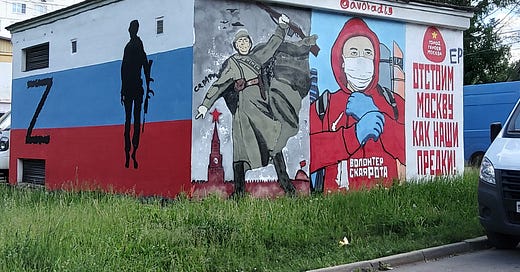




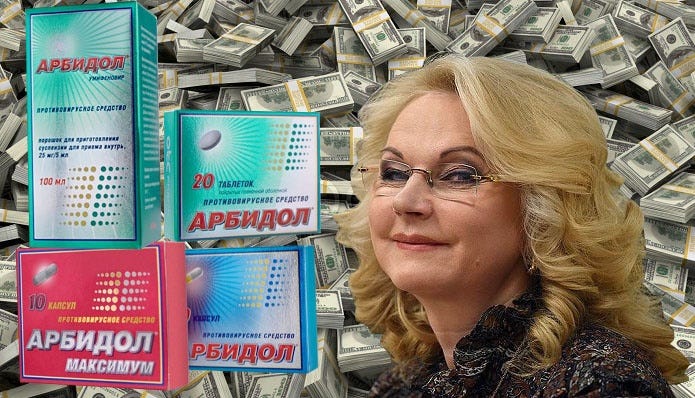
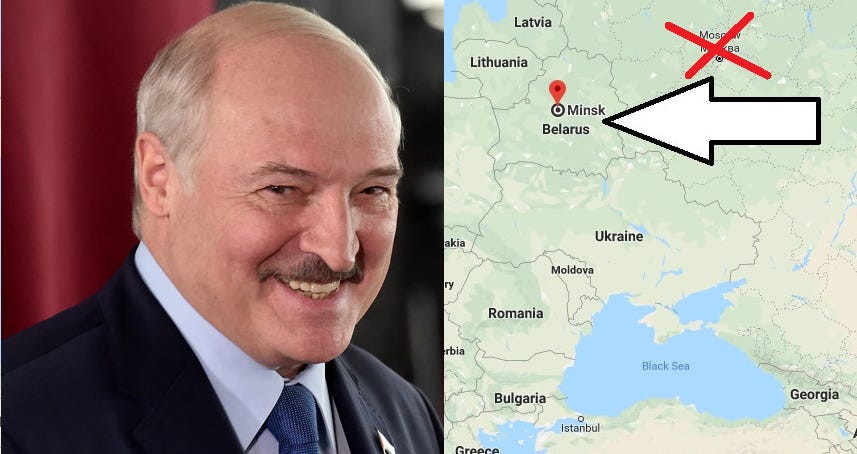
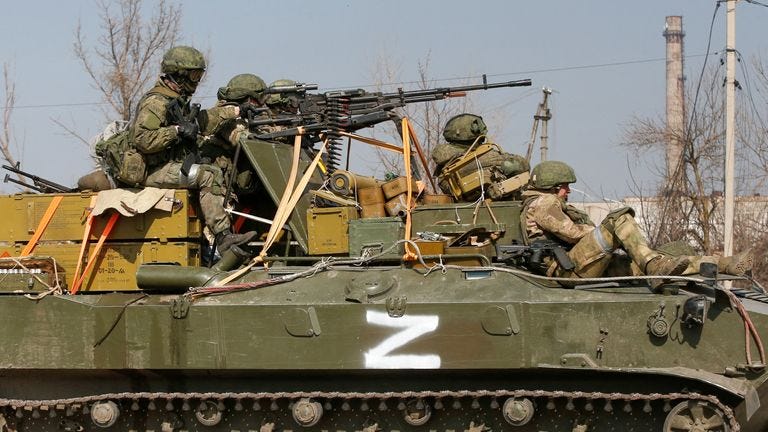
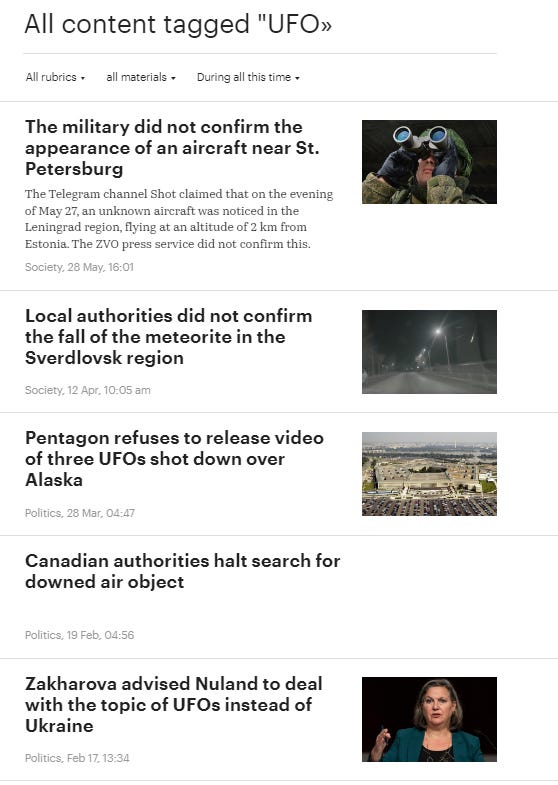
once again, you liberate my spirit with thy dry humour. thx riley..
Lmao! I’m thrilled you answered my question…shows you how exciting life in Canadastan is. I’ll be furtively forwarding your stacks to the daughter in question leading her to the obvious conundrum “who is this Edward Slavsquat and does his Avatar truly represent him?”